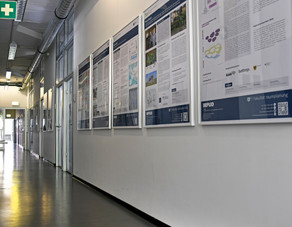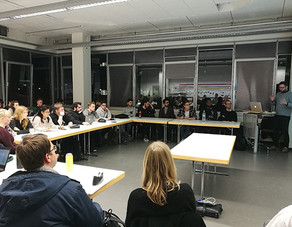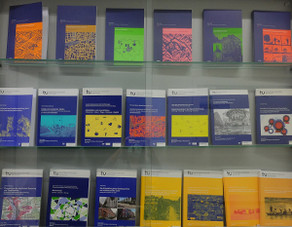Winter semester 2025/2026
Modern societies are vulnerable to a variety of processes that have both natural and man-made causes (see COVID-19!).
As a rule, risks have a spatial component because they arise, spread and have an impact in certain spaces.
Spatial planning makes decisions on whether and how certain spaces should be used, taking into account their exposure to natural and technological hazards and the vulnerability of spatial and settlement structures. Preventive planning to deal with risks from natural and technical hazards is an important task for spatial planning, as this summer's extreme floods have shown. The importance is increasing due to climate change.
Aim of the seminar: To convey the relevance of risks from natural and technological hazards for spatial planning. The seminar will discuss the relevant theories of hazard and risk research as well as climate impact research. Furthermore, a critical examination of the role of spatial planning in the assessment and management of risks and adaptation to climate change is planned. Finally, concrete application cases will be prepared and reflected on against the background of the theoretical knowledge acquired.
Date: Tuesday, 14.10.2025 to 03.02.2026 , 10:15 - 11:45 a.m., weekly
Location: GB III, R 517
Further information: Course in LSF
Lecturer: Prof. Dr. Stefan Greiving (RER)l
Today the impacts of climate change belong to the most challenging issues in planning at all administrative levels. The seminar therefore intends to introduce the different facets of climate change and its inherent risks as well as to provide showcase strategies and approaches which are appropriate for communities to cope with them. The mission is to enable future planners to address impacts of climate change through mitigation and adaptation measures involving relevant actors and stakeholders. The first part of the seminar is shaped by faculty members introducing principles of climate change and risk management. The second part focuses on individual presentations from participants dealing with specific aspects of climate change to acquire more practical knowledge.
Date: Tuesday, 14.10.2025 to 03.02.2026, 08:30 - 10:00, weekly
Location: GB I, R 410
Further information: Event in LSF
Lecturer: Prof. Dr. Stefan Greiving (RER)
The recent flood events in Germany illustrated once more the need for more land for flood. Traditional flood protection strategies, predominantly reliant on grey infrastructure like dikes and dams, prove inadequate in managing the dynamic nature of flood risks independently. Nature-based solutions (NBS) emerge as promising alternatives to complement grey infrastructure, as NBS is able to combine flood retention functions with other land uses. However, effective implementation of NBS requires a careful selection of land and solutions, as well as tailored strategies to succeed implementation.
Here is a role for spatial planning. As NBS implementation has to happen on private land, it is in the power of planners to activate the land in private ownership. Addressing these landowners requires responsive strategies, such as compensating or incentivizing flood retention services, or property rights issues allowing temporary flood storage on private land, or public participation to ensure involvement of private landowners, and the integration of flood retention into agricultural subsidies.
This course zooms in on multiple case studies across Europe where the implementation of NBS is required to tackle climate impact. Throughout the course, we will discuss the challenges these case studies are facing, and discuss the possible strategies to move forward for each case study. Through these cases, students will:
- First, students will know how diverse NBS potentially alleviate various climate risks
- Second, students will know how different strategies are needed to implement these NBS.
Third, students are able to develop a policy advice for implementing NBS on private land that evaluates what NBS are needed, and what strategies fit the implmentation procedure, in a specific case study
Further information: Course in the LSF
Lecturers: M. S.c Peter Davids






